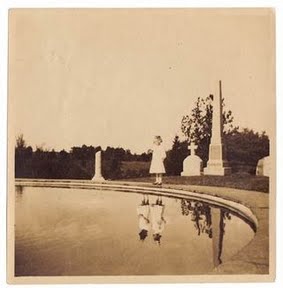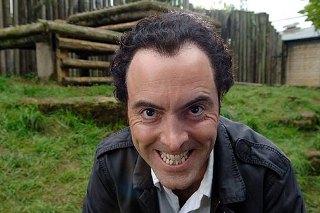Captain Vorpatril’s Alliance
The latest entry in Lois McMaster Bujold’s Vorkosigan Saga actually focuses on one of the colorful side characters of Bujold’s Vor universe: Ivan Vorpatril. Variously referred to as “That idiot Ivan” (or directly addressed as “Ivan, you idiot!”) among other variations, Ivan is often played as a foil for Miles (the central character for this 15 book or so series, though Miles takes a minimal role in this particular installment). In early novels, Ivan is generally portrayed as a lazy but handsome womanizer type, completely harmless and lacking in ambition. One wouldn’t think that this would make for a particularly compelling or even sympathetic protagonist, but as the series progresses, you get a better feel for the character and his motivations (or rather, the environment which caused such). Indeed, his laziness is carefully constructed, and probably more work than it would be to actually apply himself.
You see, both Miles and Ivan are technically in line for succession to the Emperor’s throne. This sounds fine and dandy, but on Barrayar (the planet these stories revolve around), being a serious contender for the throne makes one a target for assassination plots, conspiracy theorists, political muck-raking, and general misery. Miles, by virtue of his mutated appearance (among other qualities that would take way too long to go into here), is mostly exempted from this pressure, to the point where he has a sorta opposite problem. But Ivan is the tall, dark, and handsome type, the perfect vision of a leader. And in terms of succession, he’s basically next in line. If he even hinted at applying himself, he’d probably be portrayed as a potential usurper to the throne by political enemies (of both Ivan’s family and the Emperor, or whoever thought they could benefit from some additional instability in the ruling class). If this seems paranoid, well, sure, but we’ve seen such happenings throughout the series (whether that be actual military coups, or political enemies portraying someone as a potential revolutionary). To forestall such political wrangling (not to mention the aforementioned assassination attempts and whatnot), Ivan has carefully cultivated an air of lazy incompetence so that he could never be taken seriously by any political operatives or revolutionaries or what have you.
As the series progresses and Emperor Gregor ascends to the throne and actually manages to stabilize and grow Barrayar, not to mention take a wife and start popping out kids, the pressure on Ivan is released somewhat. As such, we start to see that he’s not as dumb as he appears. I particularly enjoyed his role in A Civil Campaign. At the start of Captain Vorpatril’s Alliance, Ivan is living as a comfortable Bachelor, but a certain restlessness has crept in. Enter a friend and Barrayaran intelligence operative with a strange request to look after an attractive young woman who may be in danger, appealing to Ivan’s Barrayaran sense of chivalry.
I actually don’t want to get into too much detail about the plot. The first act basically plays out like a spy thriller with a dash of romance, while the second act turns into more of a comedy of errors kinda thing (akin to A Civil Campaign), and the third act morphs into a sorta heist story. The first half of the book is great and funny and I found myself wearing a stupid grin and laughing a lot. Things slow down just a bit in the middle as Bujold maneuvers for the final act, which is also quite good. I’d put this somewhere towards the top of the Vor series in terms of enjoyability, certainly better than the last two installments (which were no slouches, to be sure), though not quite reaching the peaks of my favorite novels.
Again, I don’t want to give too much away, but Ivan’s romantic interest is Tej Arqua, and while their introduction may have been harried and rushed in convenience, they actually do match together rather well. Tej is from a house of Jackson’s Hole, which is the Vor universe’s sorta free-for-all capitalist planet, with no real rule of law. Her house has just been attacked and split up, with members of her family hiding in exile… which is when Ivan runs into her. Eventually she begins to get a feel for the man and his planet. In line with the above discussion, Tej has Ivan pegged as “…a middling Vor officer of middling responsibilities and middling rank. Just middling along.” To which someone replies that such a sentiment is a “charming understatement,” while explaining Ivan’s family and potential of succession…
Bujold has mentioned that she intends the book to work as a stand-alone to first-time readers, but so much of what I enjoyed about the book came from the fact that I’ve read all the previous novels. I’m positive that it would work for new readers, but I don’t know that you’d get that stupid grin and engage in laugh-out-loud moments like I was if you don’t get the background. That being said, I do appreciate that Bujold tends to make her novels stand-alone stories, rather than relying on cliffhangers and multi-book stories (even if there are character arcs that go across multiple books, each book generally tells a self-contained story). I would still recommend that you start the series with Shards of Honor or The Warrior’s Apprentice, but all things considered, this one is pretty darn good.


